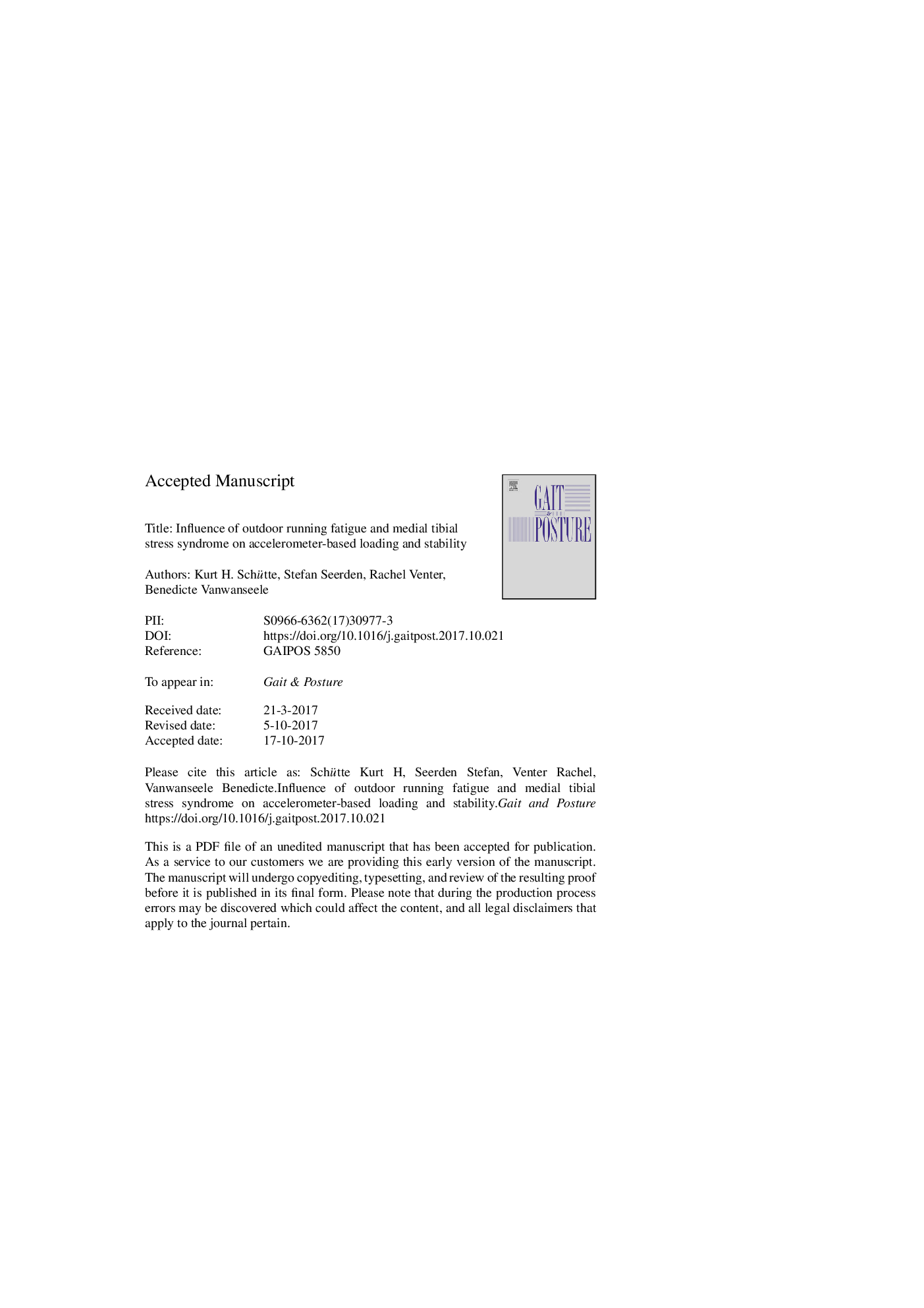| کد مقاله | کد نشریه | سال انتشار | مقاله انگلیسی | نسخه تمام متن |
|---|---|---|---|---|
| 8798685 | 1603836 | 2018 | 14 صفحه PDF | دانلود رایگان |
عنوان انگلیسی مقاله ISI
Influence of outdoor running fatigue and medial tibial stress syndrome on accelerometer-based loading and stability
ترجمه فارسی عنوان
اثر خستگی در حال اجرا در فضای باز و سندرم استرس مزمن تیبایی بر پایه شتاب سنج و پایداری
دانلود مقاله + سفارش ترجمه
دانلود مقاله ISI انگلیسی
رایگان برای ایرانیان
کلمات کلیدی
شتاب سنج، در حال اجرا آسیب بیش از حد، خستگی، سنسور فرسوده، پیچیدگی،
موضوعات مرتبط
علوم پزشکی و سلامت
پزشکی و دندانپزشکی
ارتوپدی، پزشکی ورزشی و توانبخشی
چکیده انگلیسی
Medial tibial stress syndrome (MTSS) is a common overuse running injury with pathomechanics likely to be exaggerated by fatigue. Wearable accelerometry provides a novel alternative to assess biomechanical parameters continuously while running in more ecologically valid settings. The purpose of this study was to determine the influence of outdoor running fatigue and MTSS on both dynamic loading and dynamic stability derived from trunk and tibial accelerometery. Runners with (n = 14) and without (n = 16) history of MTSS performed an outdoor fatigue run of 3200 m. Accelerometer-based measures averaged per lap included dynamic loading of the trunk and tibia (i.e. axial peak positive acceleration, signal power magnitude, and shock attenuation) as well as dynamic trunk stability (i.e. tri-axial root mean square ratio, step and stride regularity, and sample entropy). Regression coefficients from generalised estimating equations were used to evaluate group by fatigue interactions. No evidence could be found for dynamic loading being higher with fatigue in runners with MTSS history (all measures p > 0.05). One significant group by running fatigue interaction effect was detected for dynamic stability. Specifically, in MTSS only, decreases mediolateral sample entropy i.e. loss of complexity was associated with running fatigue (p < 0.01). The current results indicate that entire acceleration waveform signals reflecting mediolateral trunk control is related to MTSS history, a compensation that went undetected in the non-fatigued running state. We suggest that a practical outdoor running fatigue protocol that concurrently captures trunk accelerometry-based movement complexity warrants further prospective investigation as an in-situ screening tool for MTSS individuals.
ناشر
Database: Elsevier - ScienceDirect (ساینس دایرکت)
Journal: Gait & Posture - Volume 59, January 2018, Pages 222-228
Journal: Gait & Posture - Volume 59, January 2018, Pages 222-228
نویسندگان
Kurt H. Schütte, Stefan Seerden, Rachel Venter, Benedicte Vanwanseele,
